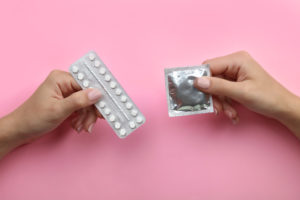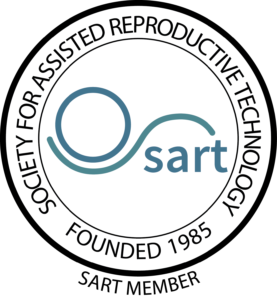What you need to know about conceiving after birth control
 You can turn to our Tennessee fertility doctors to learn more about conceiving after birth control. Factors that impact the process of becoming pregnant after stopping birth control include the type of birth control you were using and your fertility.
You can turn to our Tennessee fertility doctors to learn more about conceiving after birth control. Factors that impact the process of becoming pregnant after stopping birth control include the type of birth control you were using and your fertility.
In addition to helping you learn more about your fertility, we also offer fertility treatment options if you need a little extra help conceiving.
How long becoming pregnant after stopping birth control could take
An important part of understanding how long conceiving after birth control could take involves the type of birth control you were using. Each variety of birth control affects the body in different ways, which can influence the timing of conception.
Conceiving after using the pill or patch. The hormones in the pill and patch that help prevent pregnancy often leave the body within a few days of stopping the pill or removing the patch. Ovulation can resume at this time, but it can sometimes take one to three months before your body is ready to conceive after being on these varieties of birth control.
If you are taking a progesterone-only pill, also known as the mini-pill, ovulation can resume within 24 hours of stopping it.
Having a baby after removing your IUD. As the copper IUD doesn’t release hormones, you can begin ovulating as soon as the doctor removes this type of IUD. However, it typically takes about a month for ovulation to resume.
If you have a hormonal IUD, you might not ovulate for a few months after its removal.
Ovulating after a birth control injection. The drug in the birth control shot that prevents pregnancy slowly releases from the muscle, so it could take six to 12 months to conceive after the last injection.
Regardless of the type of birth control, our Tennessee fertility doctors find that many women become pregnant within a year of stopping birth control.
Determining whether you should see a fertility doctor when conceiving after birth control
After you stop using birth control, you might experience fertility issues that can affect your ability to become pregnant. Certain factors indicate that you should see a fertility doctor, as the doctor can often provide the right diagnosis and effective treatment options.
- If you’re a woman who is 35 or over who does not conceive after six months of stopping birth control, you should see one of our Tennessee fertility doctors.
- When you’re younger than 35, you should see a fertility doctor after trying to conceive for 12 months after getting off birth control.
- If your period doesn’t return within three months of ending birth control, or your cycle is irregular, you can benefit from visiting a fertility doctor.
- A medical history of sexual dysfunction, amenorrhea, PCOS or pelvic disease can affect becoming pregnant after stopping birth control.
A woman can also increase her chance of conceiving after birth control by tracking ovulation, taking a prenatal vitamin before trying to become pregnant and adopting a healthy lifestyle. Contact us for more information about becoming pregnant after stopping birth control.
Tweet





